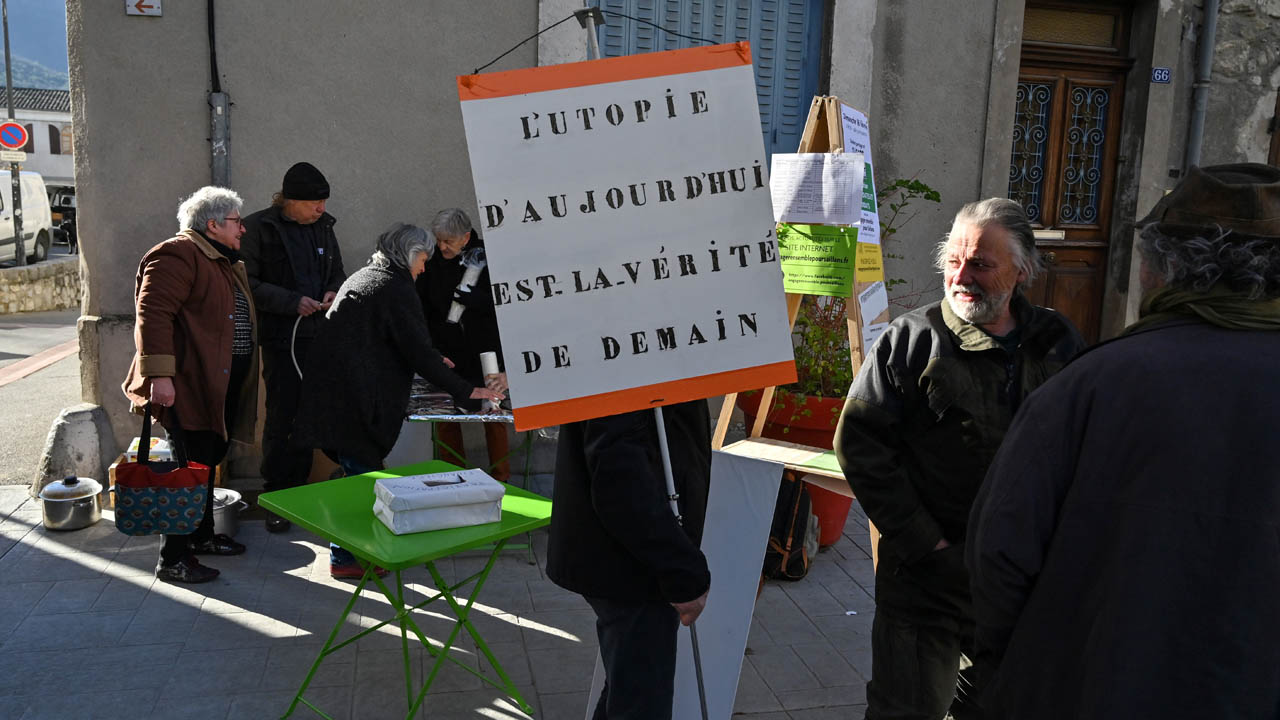
Allegedly a hit ordered by a businessman with connections to politicians, the killing of Jan Kuciak, which also took the life of his fiancee Martina Kusnirova, has become a lightning rod for public outrage at the graft in public life.
Hit hard by the fallout of the murder, most surveys suggest that Robert Fico’s governing populist-left Smer-Social Democracy (Smer-SD) party is running neck-and-neck with OLaNO, a surging center-right opposition party focused on rooting out corruption.
OLaNO even outpaced Smer-SD by 3.5 percent in a last-minute AKO/Focus agency opinion survey published this week in the neighbouring Czech Republic to bypass a pre-election polling ban in Slovakia.
“Change is much needed here,” said Daniela Jonasova, a 35-year-old office clerk, who told AFP she voted for OLaNO at a Bratislava polling station shortly after it opened at 0600 GMT.
“I like the way (OLaNO leader Igor) Matovic points out what is wrong in Slovakia — I believe he’ll bring a real change,” she added, referring to OLaNO’s anti-graft focus.
– ‘Decency in politics‘ –
According to Bratislava-based political analyst Radoslav Stefancik, “the election is primarily about the desire for decency in politics.
“Instead of protesting against the ruling Smer-SD party on the streets, people will do so in polling stations,” Stefancik told AFP.
The double murder triggered the largest anti-government protests since communist times and toppled Fico as prime minister, with his party colleague Peter Pellegrini taking over the reins.
It also propelled Zuzana Caputova, a liberal lawyer and anti-graft activist, out of nowhere to win last year’s presidential race in this country of 5.4 million people.
According to political analyst Grigorij Meseznikov, the double murder “has reconfigured the entire political scene, as new liberal-democratic parties emerged and immediately gained support.
“The most likely scenario is the creation of a center-right pro-democracy oriented government coalition of six or even seven parties,” he added.
Having vowed to immediately push through anti-corruption measures should he win office, OLaNO leader Matovic, a 46-year-old MP, appears to have galvanised voter outrage over the murders and the high-level corruption they exposed.
An eccentric self-made millionaire and former media boss, Matovic set up “Ordinary People and Independent Personalities — OLaNO” a decade ago.
Analysts suggest the media-savvy but unpredictable politician could become premier if he manages to unify the splintered opposition.
– Far-right gains? –
Although Fico has ruled out a post-election coalition deal with the far-right Our Slovakia LSNS, the two parties joined forces this week in parliament to pass a Smer-SD bill giving pensioners extra benefits, a move the opposition condemned as pork-barrel electioneering.
“I’ll vote for Fico — he’s a real leader,” Jaroslav, a 62-year-old Bratislava pensioner who declined to give his surname, told AFP, adding that “the opposition is just full of empty promises”.
Capitalising on its anti-establishment posture and a backlash against Slovakia’s impoverished Roma minority, surveys show the LSNS could double its current 10 seats in the 150-member unicameral parliament.
Kotleba, 42, a former regional governor, is notorious for having previously led street marches with party members dressed in neo-Nazi uniforms. He faces fresh hate-speech charges after having already been acquitted of similar allegations.
Campaigning against migrants and the Roma minority, the LSNS won its first seats in parliament in 2016.
Kotleba sent out a similar message ahead of Saturday’s vote, intended to tap into resentment against welfare payments for members of the Roma community.
Friendly with Russia, Kotleba wants Slovakia to exit the US-led NATO defence alliance and is hostile towards the European Union.
Heavily dependent on car-making, the growth in the Slovak economy is projected to slow to 2.2 percent this year, narrowly down from 2.3 percent in 2019, before hitting 2.6 percent in 2021, according to the European Commission’s latest forecast.
Unemployment is relatively low at around 5.6 percent in late 2019.
An exit poll is expected shortly after polling stations close at 2100 GMT.



